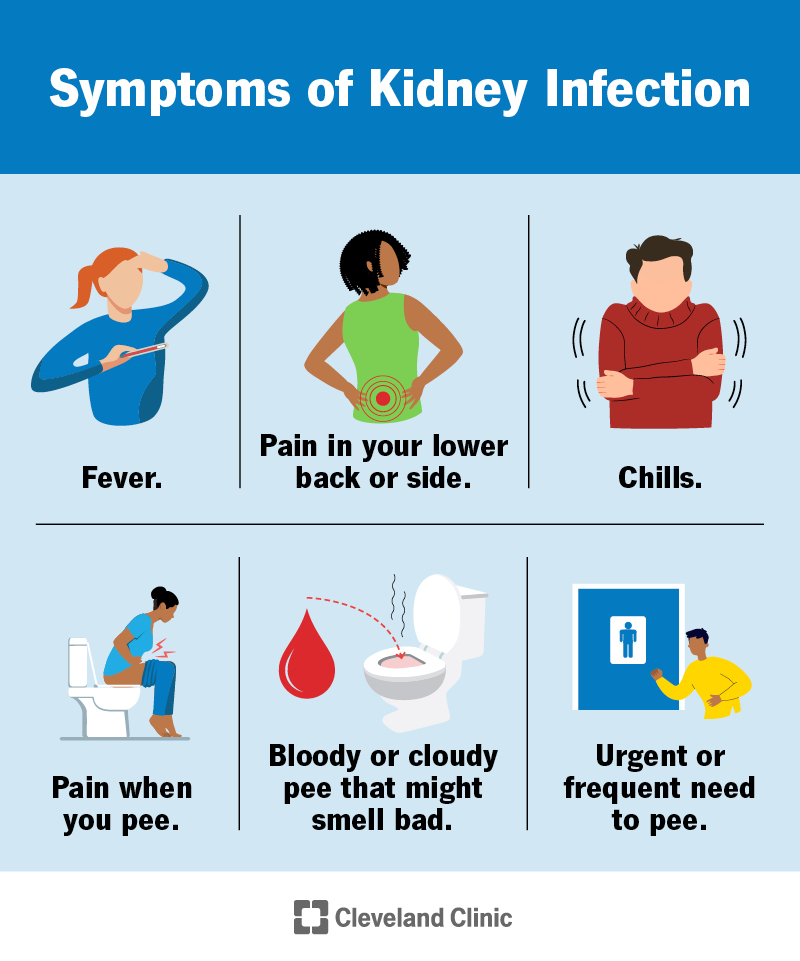Kidney Stones vs UTI: Specialist Insights on Effects, Analysis, and Administration
Kidney Stones vs UTI: Specialist Insights on Effects, Analysis, and Administration
Blog Article
Exploring the Manifestations and Causes of Kidney Stones in Comparison to Urinary Tract Infections: A Detailed Overview
The expedition of kidney stones and urinary tract infections (UTIs) reveals a complicated interplay of signs and symptoms and underlying reasons that call for careful assessment. While both problems can lead to hematuria, they offer distinct scientific attributes and occur from various etiological elements. Understanding the subtleties of each problem is vital for efficient medical diagnosis and management. What are the essential distinctions in their signs, and just how might these educate therapy techniques? The response to these questions might supply vital understandings right into the prevention and treatment of these common urological concerns.
Review of Kidney Stones
Kidney stones, also called renal calculi, form when specific compounds in the pee crystallize and aggregate, bring about the advancement of hard down payments within the kidneys. These stones can differ in dimension, ranging from a grain of sand to a golf sphere, and can be composed of various products, the most typical being calcium oxalate, uric acid, struvite, and cystine. The development of kidney stones is affected by numerous variables, including dietary practices, liquid consumption, and hereditary tendency.
Symptoms of kidney rocks may include severe pain in the back or side, blood in the urine, nausea, and regular urination, especially as the stone relocates with the urinary tract. Diagnosis normally involves imaging research studies such as ultrasound or CT scans, together with urinalysis to identify the rock's structure.
Treatment options vary based upon the size and kind of rock, along with the severity of signs (Kidney Stones vs UTI). Little stones may pass naturally with increased fluid consumption, while bigger rocks might need medical interventions such as lithotripsy or surgical elimination. Comprehending the pathophysiology and threat factors connected with kidney rocks is crucial for effective prevention and monitoring
Overview of Urinary System Infections
Urinary system tract infections (UTIs) prevail microbial infections that affect any component of the urinary system, including the kidneys, ureters, bladder, and urethra. They primarily happen when bacteria, often from the stomach system, enter the urinary system, causing inflammation and infection. UTIs are categorized right into two primary types: challenging and uncomplicated. Straightforward UTIs commonly happen in healthy and balanced people with normal urinary system systems, while difficult UTIs might occur in individuals with underlying problems, such as structural problems or jeopardized body immune systems.
The prevalence of UTIs is significantly higher in females than men, largely because of physiological differences, such as a shorter urethra. Danger aspects include sexual activity, certain contraceptive methods, urinary system retention, and dehydration. The diagnosis of UTIs is usually confirmed through pee examinations, which may disclose the visibility of bacteria, leukocyte, or red blood cells.

Symptoms of Kidney Stones
The discomfort related to kidney rocks can materialize in various ways, typically leading individuals to look for clinical attention. Among one of the most typical symptoms is extreme pain, usually localized in the reduced back or side, which may emit to the abdomen or groin. This pain, frequently referred to as sharp or cramping, can take place all of a sudden and might change in intensity.
In addition, individuals might experience hematuria, or blood in the pee, which can range from tiny amounts to noticeable discoloration. This symptom may be come with by adjustments in urinary routines, such as increased regularity or seriousness, as well as discomfort throughout urination. Nausea or vomiting and throwing up are likewise widespread, typically arising from the body's response to extreme discomfort.
In many cases, people may experience fever and cools, especially if an additional infection establishes because of the obstruction brought on by the stones. In general, the combination of severe discomfort, hematuria, modified urinary patterns, and gastrointestinal symptoms can provide substantial understanding into the visibility of kidney rocks, necessitating timely medical evaluation and treatment. Comprehending these symptoms is crucial for prompt diagnosis and effective administration of the condition.
Signs And Symptoms of Urinary System Infections
Infections within the urinary system commonly present a variety of unique signs that can substantially influence every day life. The most common signs include a relentless impulse to pee, typically come with by a burning feeling during peeing, called dysuria. Individuals may likewise experience boosted regularity of peeing, producing tiny quantities of pee each time.
Various other noteworthy signs and symptoms include gloomy or foul-smelling pee, which may suggest the existence of bacteria or pus. In some instances, pee may show up pink or red due to the presence of blood, a problem known as hematuria. Additionally, individuals might experience pelvic pain or pressure, which can better intensify i loved this the sensation of urgency.
Systemic symptoms may also materialize, such as fever, cools, and fatigue, especially if the infection has actually risen to the kidneys. It is important to acknowledge these symptoms early, as without treatment urinary tract infections can cause much more extreme issues. Kidney Stones vs UTI. Prompt medical attention is advised when these signs are observed, enabling for appropriate diagnostic assessment and therapy to ease discomfort and prevent additional health issues
Reasons For Each Problem
Frequently, my review here kidney rocks and urinary system tract infections arise from distinct yet sometimes overlapping causes that can affect people differently. Kidney rocks typically develop as a result of metabolic factors, dietary selections, and hereditary predispositions. Enhanced levels of calcium, oxalate, or uric acid in the pee can lead to stone formation. Dehydration, insufficient fluid intake, and high-sodium diets can intensify these problems, promoting formation within the urinary system.

Recognizing these unique causes is crucial for prevention and treatment. Kidney Stones vs UTI. While way of life modifications might reduce the risk of kidney rocks, ideal health and timely treatment of urinary tract infections are essential for lowering their reappearance and connected difficulties
Final Thought
In summary, kidney rocks and urinary system infections existing distinctive signs and underlying reasons. Kidney stones are defined by serious discomfort and metabolic factors, while urinary system infections largely include bacterial infections leading to urinary system seriousness and pain. visit this web-site Although both conditions can lead to hematuria, their formation systems differ dramatically. Recognizing these distinctions is vital for effective diagnosis and therapy, eventually boosting individual end results for those affected by either condition.
The exploration of kidney stones and urinary system system infections (UTIs) reveals a complicated interaction of symptoms and underlying causes that call for mindful evaluation.Urinary tract infections (UTIs) are typical microbial infections that influence any kind of part of the urinary system, including the kidneys, ureters, bladder, and urethra.Often, kidney rocks and urinary system system infections emerge from distinct yet in some cases overlapping causes that can impact people differently.In summary, kidney stones and urinary system infections existing distinctive symptoms and underlying causes. Kidney stones are characterized by serious pain and metabolic aspects, while urinary tract infections mostly involve bacterial infections leading to urinary seriousness and pain.
Report this page